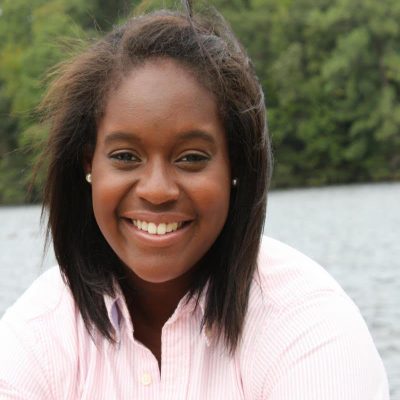Student Spotlight: Taylor Ferebee

October 10, 2022
Taylor Ferebee is a doctoral candidate in computational biology from Hampton, Virginia. She attended Roanoke College for her bachelor’s and Clemson University for her master’s and now studies the implementation and redesign of mathematical models to explain the biological processes that allow crops to survive in many environments.
What is your area of research and why is it important?
My research focuses on implementing and redesigning mathematical methods that explain the biological processes which allow crops, such as maize, to survive in many environments. These models have the potential to be a low-cost, accurate way for plant breeders and genetic engineers to explore possible outcomes of modifying plants’ tolerance to rapid climate change prior to full field experimentation.
What are the larger implications of this research?
Due to the impact of climate change, it is expected that hundreds of species will need to be quickly bred and/or modified for climate change resistant traits. Many of these species do not have the financial resources to undergo this process. Further, current models for understanding key processes behind these traits require extremely large amounts of data and computing power. This research, driven by published biological datasets, integrates the extensive knowledge from well-resourced crops, such as maize and sorghum, while also focusing on interpretable, actionable results transferable across species and scale.
How did the idea for the inaugural Black Excellence Research Symposium come about and what did it take to make it a reality?
Our fearless leaders, Breanna Green and Andrea Darby, really were the ones who dreamt of this symposium. As the leadership in BGPSA, they felt the Cornell community should celebrate the world-class talent of the Black researchers on campus, while also providing a place for the Black research community to connect and support each other. In addition, the leaders really wanted to ensure that the work within all fields, both of the liberal arts and of STEM, would be featured. Teamwork, communication between the entire committee, and support from administration of Cornell Bowers CIS, Office of Inclusion & Student Engagement, and Diversity Programs in Engineering were the driving factors in making this symposium a reality.
Is there anything else you’d like to share about the experience of helping to organize this symposium?
It was an honor to work with the members of the organizing team. The Black research community on Cornell’s campus deserves to be celebrated not only for their resilience, but also for their remarkable scholarship in their fields. Organizing this symposium allowed me to get a top-level view of the breadth of research the community does, and I encourage the entire Cornell network of research to actively engage with members of BGPSA and other similar organizations.
What are your hobbies or interests outside of your research or scholarship?
Outside of scholarship, my hobbies include weightlifting, trivia writing/playing, reading humor essays, experimenting with unclassical flavor profiles in food, or listening to philosophy podcasts. I have a passion for film and tv and hope to one day be able to work within the industry to more accurately depict the life (and dialogue) of scientists or science-related story lines. In addition, I volunteer to support individuals in my community, as I currently mentor aspiring-mathematicians as the vice director of the Black Women in Computational Biology Network.
Why did you choose Cornell to pursue your degree?
Cornell provided me the opportunity to develop my skills as a researcher simultaneously as a mathematician and a biologist. Cornell, in addition, has the breadth of knowledge across fields that can support interdisciplinary study in a way I had never seen before. As an added bonus, the summers in Ithaca are extremely beautiful, so finding outside hobbies was easy and fun.
